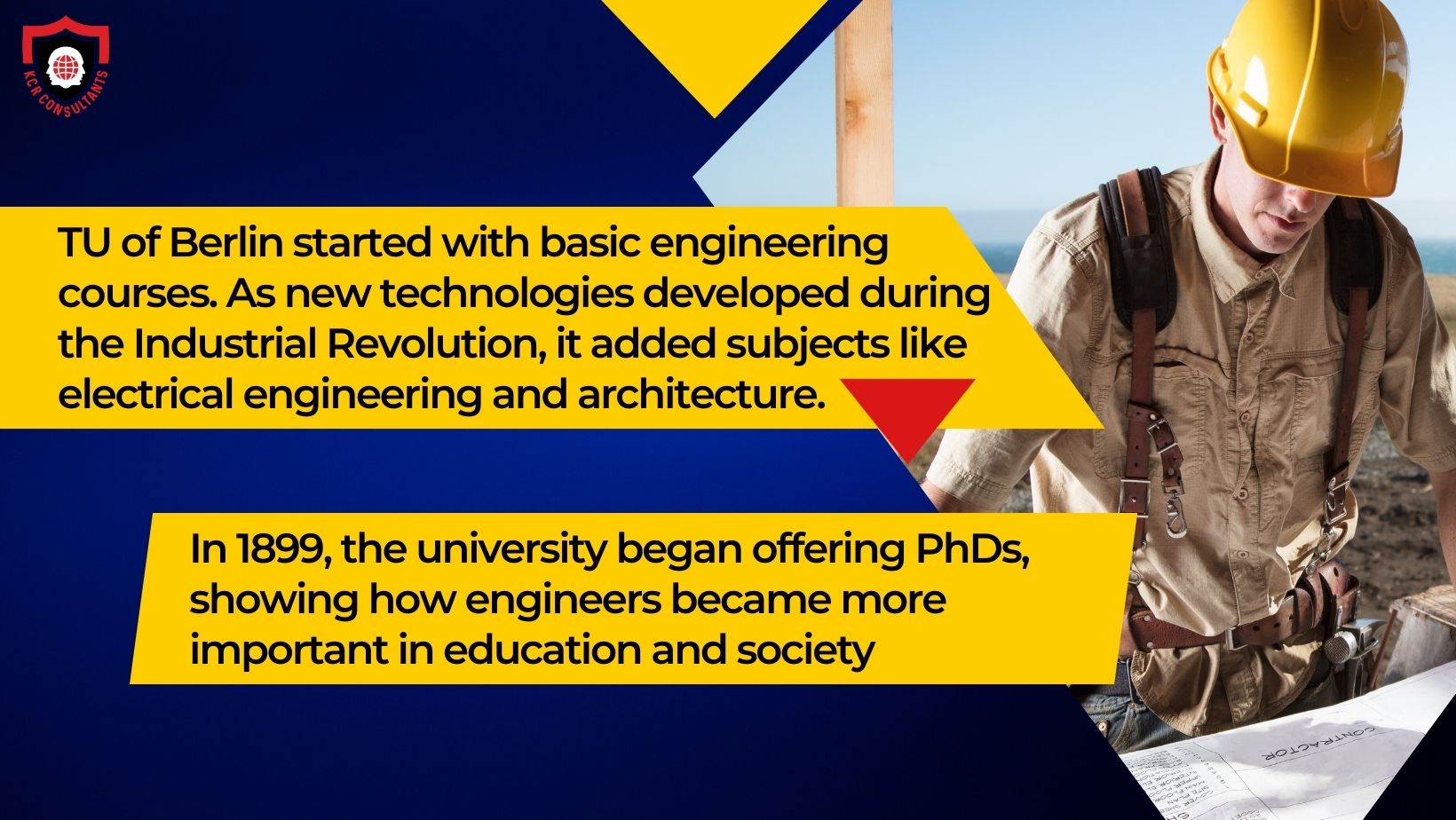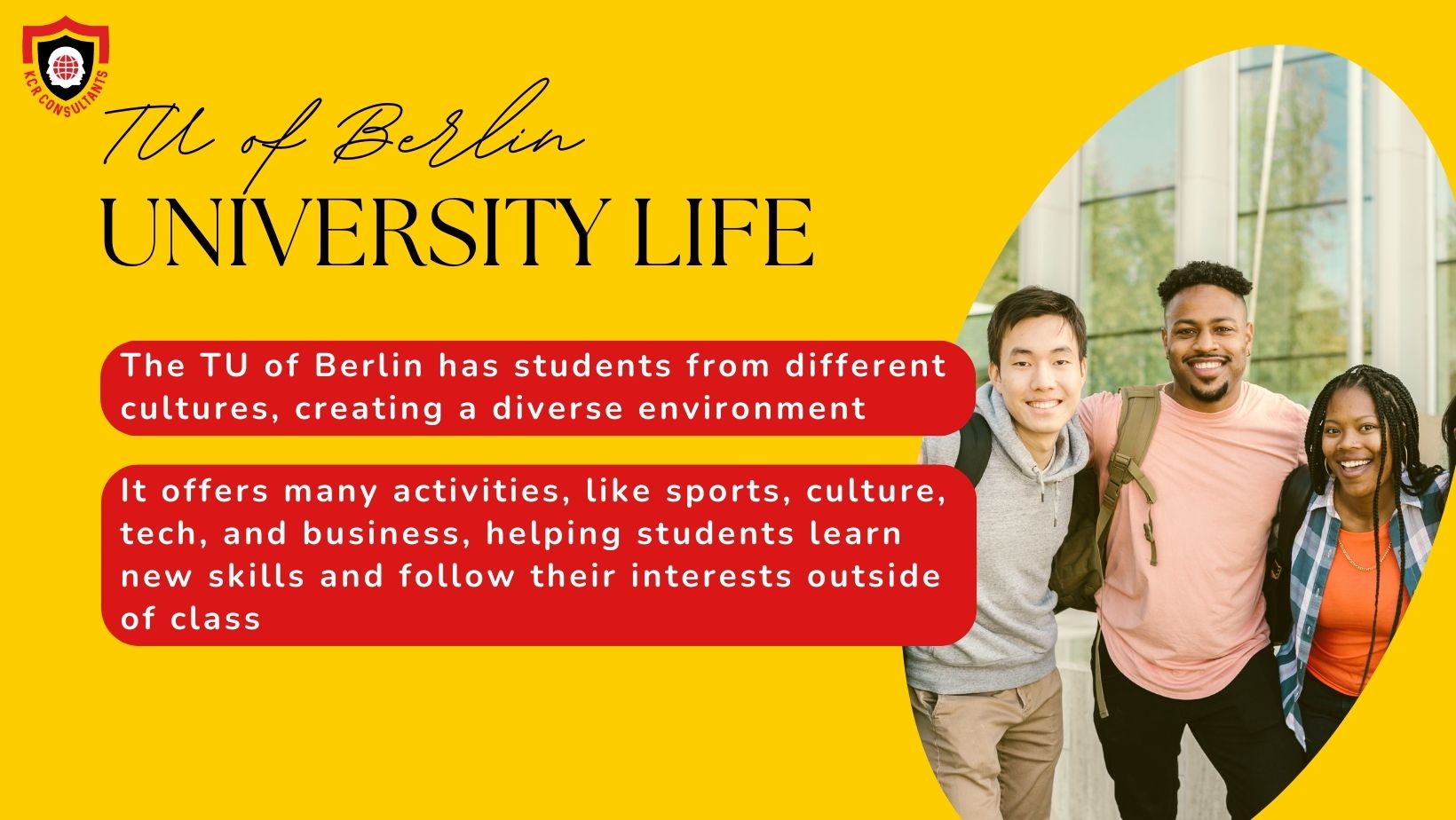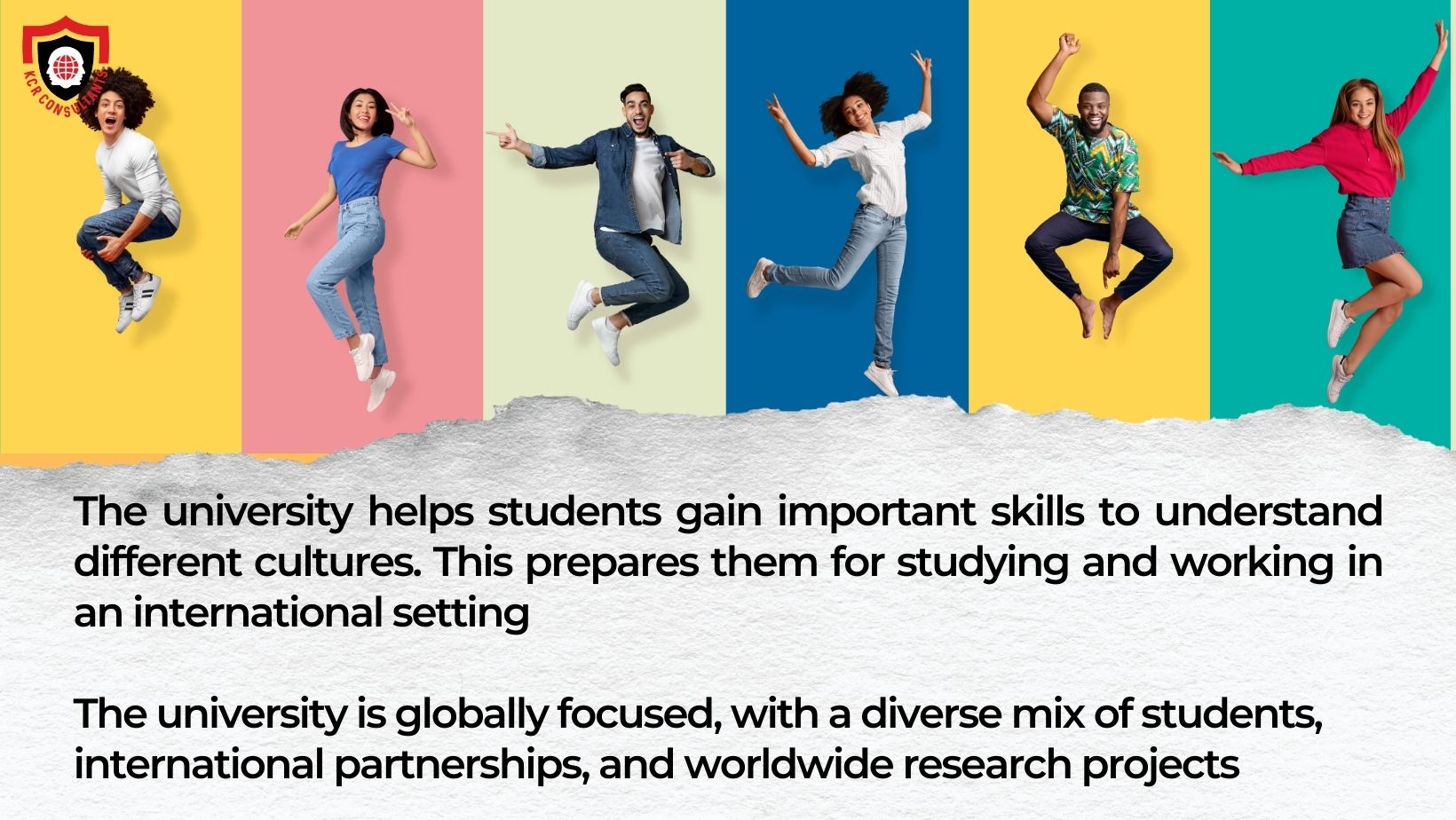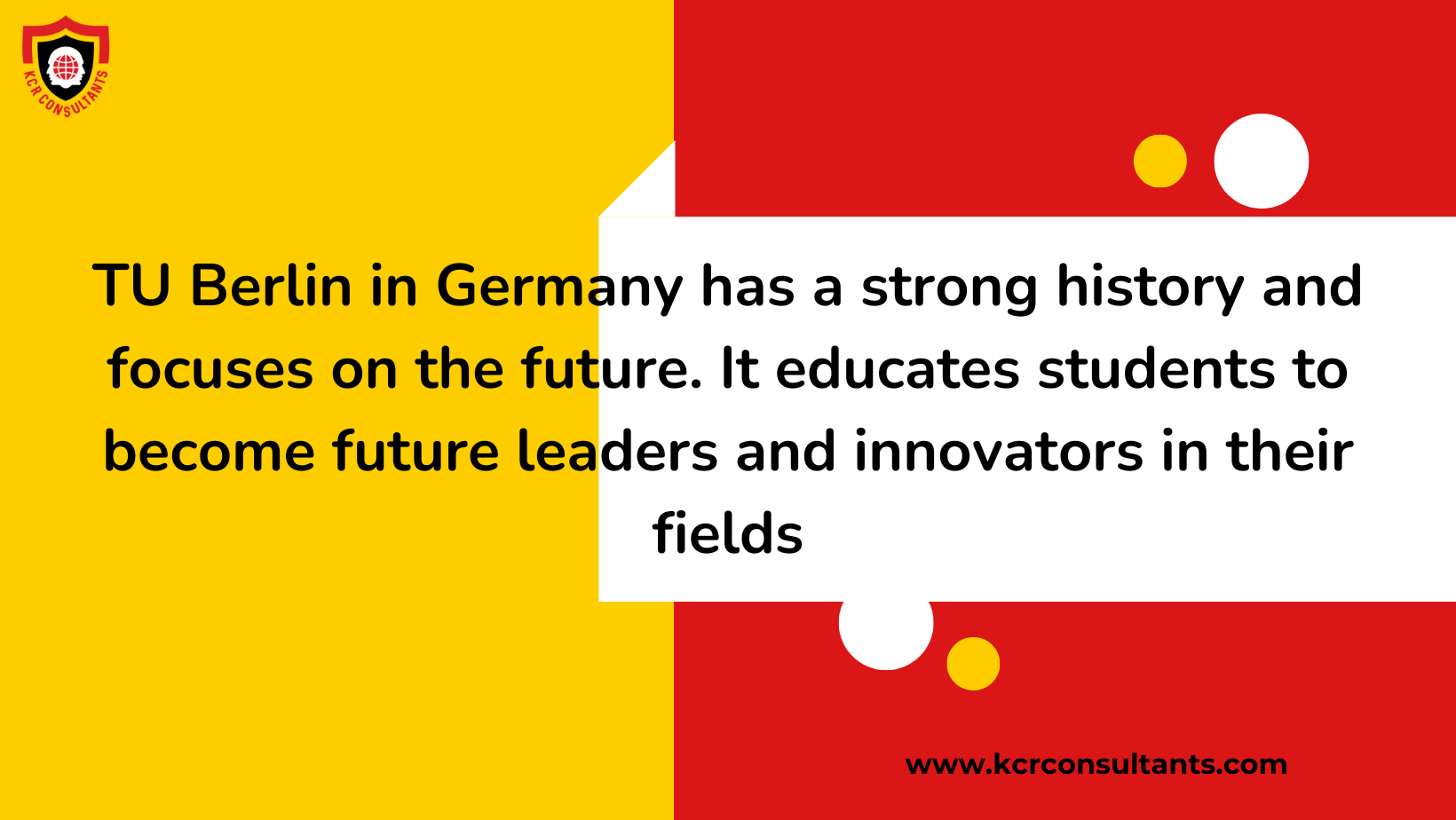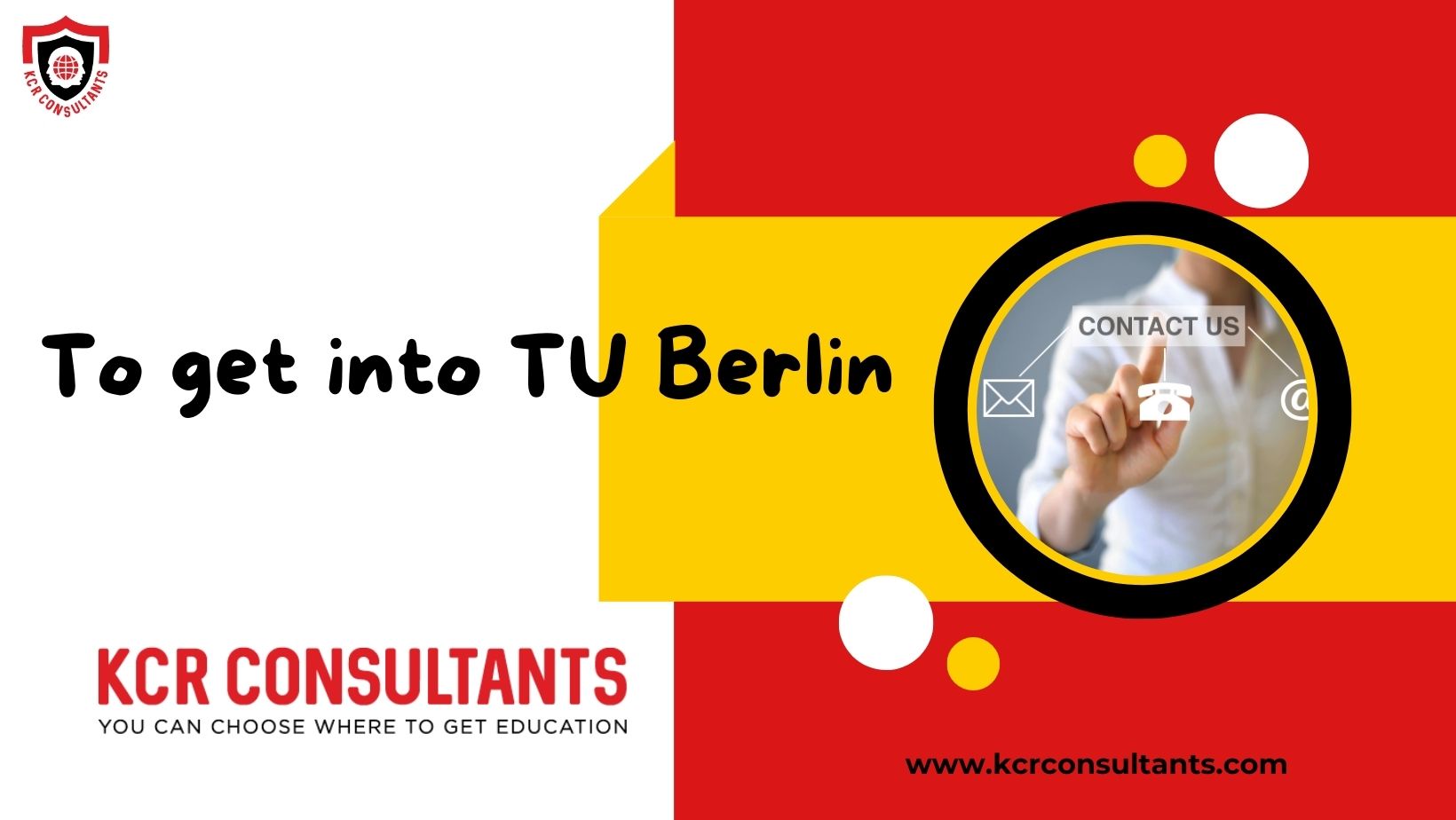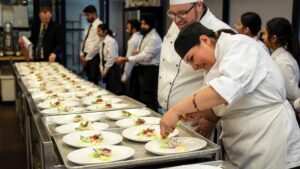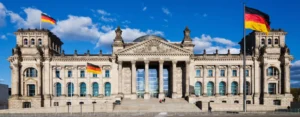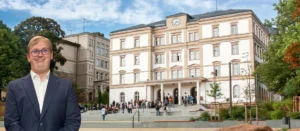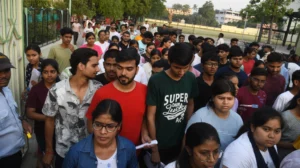INTRODUCTION
The Technical University of Berlin (TU Berlin), located in Germany’s capital, Berlin, is a witness to innovation, academic rigor and scientific inquiry.
With its origins dating back to the 19th century, TU Berlin Germany has evolved into one of Germany’s most prestigious institutions, specializing in engineering, technology and natural sciences.
Renowned for its cutting-edge research, vast academic offerings and commitment to sustainability and innovation, the university plays a vital role in crafting both the German and global educational landscapes.
As one of the biggest technical universities in Germany, TU Berlin is recognized for its high academic standards, influential research contributions and vibrant campus life.
It influence extends beyond academia, directly impacting industries and communities through technological advances and sustainable solutions.
This article delves deep into the rich tapestry that is TU Berlin Germany, exploring its history, academic programs, research endeavors and the vibrant life on campus.
As we proceed to unfold the story of this esteemed institution, you will understand how TU Berlin is not just a place of learning but a crucible of innovation, shaping the minds that will define our future.
HISTORY
The history of Technische Universität Berlin (TU Berlin Germany) is marked by significant milestones and periods:
The Beginnings
TU Berlin originated from notable Prussian institutions like the Royal Mining Academy (1770), Royal Building Academy (1799) and Royal Trade Academy (1821), merging into the Royal Technical Academy in 1879. This academy included contributions from Karl Friedrich Schinkel, a prominent architect.
The university began its journey with a mission to provide comprehensive technical education, blending theoretical knowledge with practical applications from 1879.
First Doctorate Bestowal
Initially, the university focused on traditional engineering disciplines, but as the Industrial Revolution spread through Europe, it expanded its curriculum to include electrical engineering, architecture and other emerging fields.
Reflecting growing industrialization, the Technical University of Berlin also granted the right to bestow doctoral degrees in 1899, marking the elevation of engineers in academia and society.
Darkest Chapter
The tumultuous events of the 20th century, including two World Wars and the division of Berlin, deeply impacted the university, especially the Nazi era (started in 1933), a period of introspection and apology in the university’s later years.
Post-War
In 1946, The University reemerged as Germany’s first ‘Technical University,’ integrating humanities with technical education, representing a shift from its Nazi past.
The late 1960s and 1970s saw TU Berlin at the heart of student activism, influencing German university reforms.
Post-1989, Technical University of Berlin (Tu Berlin Germany) faced budget cuts and structural changes, necessitating a shift to bachelor’s/master’s degrees and modernizing its academic profile.
Modern Advancements and Achievements
Today, The University is known for its cutting-edge research facilities, such as the Einstein Center Digital Future and the Berlin Big Data Center.
It has also made significant contributions to space technology and artificial intelligence, further solidifying its status as a leading institution in both education and research.
The university has streamlined decision-making, focused on interdisciplinary research and joined the Berlin University Alliance, aligning with Germany’s Universities of Excellence.
Technische Universität Berlin’s mission is characterized by several key components:
UNIVERSITY MISSION
The Technical University of Berlin is a globally well-known research university with a rich tradition.
It is committed to advancing science and technology for societal benefit while adhering to the principles of sustainable development. This approach aims to meet current demands without compromising the ability of prospective generations to meet their own.
The university’s mission in teaching emphasizes the inseparable link between research and teaching, utilizing innovative and technology-oriented methods.
TU Berlin (TU Berlin Germany) recognizes its responsibility towards society, grounded not only in its history but also in its commitment to ethical and humanistic standards.
Preamble: The mission integrates natural, planning and engineering sciences with humanities and social sciences, focusing on civilian purposes exclusively.
This university is committed to advancing equal opportunities between genders and creating family-friendly study and work conditions.
It also strives for non-discrimination at all university levels and embraces the plurality of worldviews and diverse lifestyles in its teaching and research.
ACADEMIC EXCELLENCE
The university offers its students vast opportunities to see a bright future as it excels in Academic offerings.
The Technical University of Berlin offers,
Diverse Academic Offerings
TU Berlin (TU Berlin Germany), a prestigious technical university in Germany, offers over 100 study programs to its approximately 35,000 students.
It stands out as a University of Excellence in the vibrant city of Berlin.
Interdisciplinary Approach
Unique among technical universities, The University combines natural sciences, technology, planning sciences, economics, management, social sciences and humanities.
Many of its programs are distinctive in Germany, with the university being the sole provider of engineering subjects in the capital region.
Rigorous Academic Training
Students at this university receive a technically rigorous education grounded in the latest scientific developments.
The curriculum emphasizes methodological and scientific fundamentals across various disciplines.
Critical Thinking and Ethical Awareness
Besides technical knowledge, the university focuses on developing students’ critical and analytical thinking skills.
They learn to understand their knowledge and actions within broader historical, social and cultural Settings and are encouraged to reflect on the ethical implications of their actions.
RESEARCH AND INNOVATION
Technische Universität Berlin (TU Berlin Germany) is dedicated to developing ideas for the future.
Highlighting the advancement of science and technology for societal benefit, the university engages in interconnected, high-level international research.
It explores fundamental principles and their applications across a wide range of subjects.
The university is also known for establishing innovative fields and fostering inter-faculty research with external collaborators.
Six key application areas and the Clusters of Excellence, part of the federal and state governments’ Excellence Strategy, frame its research endeavors.
The Six key application areas are,
- Digital Transformation – In this research area, Researchers across all faculties at the university are dedicated to shaping digital transformation’s impact on society, addressing technical, social and economic aspects, with computer science being central.
- Energy Systems, Mobility and Sustainable Resources – In this area, researchers focus on new energy sources, sustainable production, recycling and innovative mobility solutions for societal advancement.
- Human Health, Humanities and Educational Science – Here, researchers focus on preventative strategies against age-related illnesses, critical analysis in humanities and national-level Teacher Training for societal challenges.
- Urban Systems and Environmental Systems – Scientists in this research area are researching sustainable urban and rural development, integrating planning, design and engineering with ecological and societal considerations.
- Photonics and Optical Systems – This research area focuses on developing new materials and nanophotonic devices for efficient light sources in medical technology and data communication.
- Materials, Design and Manufacturing – Scientists in this area focus on creating sustainable products, encompassing Industrie 4. 0, new materials, additive manufacturing and exploring human-machine interaction, technology impact and diversity in design.
Under the Research Field, there are three Successful Clusters of Excellence at TU Berlin (TU Berlin Germany).
They are,
UniSysCat 9
It is a research initiative that concentrates on five interdisciplinary areas, aiming to understand catalyst-reactant interactions through various experimental and theoretical methods.
It prioritizes supporting junior scholars, offering them a vibrant research environment and career preparation through initiatives like BIG-NSE 2.0 and EC2.
Additionally, it also focuses on increasing women’s representation in science and expanding national and international collaborations.
MATH+
It is a transdisciplinary Cluster of Excellence involving major Berlin universities and research institutes focused on application-oriented mathematics. It emphasizes using mathematical principles across various fields, including life sciences, energy and social sciences.
The aim is to advance scientific progress, technological innovation and understanding of social processes.
MATH+ fosters unconventional collaborations, especially in future-oriented topics and social sciences.
SCIoI
This Cluster is a collaboration between Technische Universität Berlin and Humboldt-Universität zu Berlin. It aims to comprehensively understand intelligence in all forms, from artificial to collective.
It involves interdisciplinary research from psychology to robotics, using technological artifacts as a unifying tool for scientific exchange.
The cluster seeks to fill gaps in intelligence research, integrating various disciplines to identify fundamental intelligence principles.
It also emphasizes early-career support, offering a specialized master’s track and opportunities for young researchers to propose projects, creating a unique research environment in Berlin.
INTERNATIONALIZATION
TU Berlin (TU Berlin Germany) is recognized for its vibrant international community, boasting 200 research cooperations and approximately 500 student exchange programs.
Over 20% of its student body is from abroad, representing nearly 150 countries. Each year, the university welcomes more than 900 visiting scholars.
Through its Internationalization@home program, The University ensures that students develop essential intercultural skills, preparing them for success in an international study environment and equipping them for future global career opportunities.
The university’s global perspective is evident in its diverse student body, international collaborations and global research initiatives.
International Partnerships and Programs
Technical University of Berlin has established partnerships with numerous universities and research institutions around the world.
These partnerships facilitate student and faculty exchanges, joint research projects and shared academic programs, enriching the educational experience with diverse perspectives and expertise.
Some of the Strategic partnered universities are,
- University of Technology Sydney
- Politecnico di Milano
- Norwegian University of Science and Technology
- Tongji University
- Peter the Great St. Petersburg State Polytechnical University
- Technical University of Vienna
Some of the International partnered universities are,
- Belgium’s Free University of Brussels
- Finland’s Helsinki University of Technology
- Lithunia’s Vilnius University
- Egypt’s Ain-Schams-Universität
- Canada’s University of Calgary
- USA’s Arizona State University
- Bangladesh’s German University Bangladesh
- China’s Beijing Institute of Technology (BIT)
- Japan’s Kyoto University
- Korea’s Dongseo University
- Thailand’s Chulalongkorn University
- Australia’s University of Melbourne
FUNDINGS AND SCHOLARSHIPS OFFERED
TU Berlin (TU Berlin Germany) also offers various permanent funding options for international research and cooperation projects, including internal and external programs and provides advisory support.
Some of the Funding programs are,
Erasmus+ Mobility Funding / Cooperation Projects
Erasmus+ Program offers various funding options to support international cooperation projects in education and training.
Erasmus+ Program also provides funding for student and staff mobility, enhancing international higher education collaboration through two lines: KA131 with program countries and KA171 with non-EU partner countries.
PROMOS Funding
The PROMOS program offers scholarships for short study trips abroad, targeting destinations not covered by existing exchange or dual degree programs.
SPRINT – TU Berlin FAPESP cooperation initiation program (Brazil)
Through this program, Technical University of Berlin students can apply for SPRINT funding with São Paulo researchers for joint projects across all disciplines, supported by FAPESP and TU Berlin with €20,000 over two years.
Bench fees
The university’s bench fees cover costs at the hosting academic chair, like teaching and supplies, with a 51 euro monthly payment for visiting scholars, excluding funded students and doctoral candidates. This funding is based on the student’s details and stay length.
UNIVERSITY LIFE
At the Technical University of Berlin, university life extends beyond lectures, seminars and exams, encompassing diverse extracurricular activities, clubs and rich cultural experiences.
Let us explore its offerings;
Extracurricular Activities
Technical University of Berlin (TU Berlin Germany) is home to a diverse student body, creating a vibrant multicultural environment. The university encourages student engagement through various clubs, organizations and events.
These range from cultural and sports groups to technical societies and entrepreneurship clubs, providing students with numerous opportunities to pursue their interests and develop new skills beyond the classroom.
Language Learning
The Center for Modern Languages, also known as ZEMS, provides students from all faculties with general and technical language courses, enabling them to obtain recognized language certificates.
Sports Offers
TU Sport provides a diverse range of courses, from Aerobics to Yoga, suitable to all groups and ages.
The university has been participating in international competitions and the annual Berliner Firmenlauf, with 400 students participating each year.
Canteens & cafeterias
On campus, students have access to a variety of affordable and delicious food options.
Besides the main canteen (Mensa) located on Hardenbergstraße, there are several cafeterias and student cafes offering an array of items, including rolls, coffee, cake and warm meals, perfect for a well-deserved break.
Sustainable living
At the Technical University of Berlin, sustainable living is integrated into campus culture through various projects. These include solar energy panels on the University Library’s roof, workshops equipped with 3D printers for wood and fine mechanics, brazing labs, screen printing shops and urban gardening with creative upcycling in neighborhood gardens.
The Campus in Transition network serves to combine and connect all these sustainable initiatives.
StudierendenWERK Berlin for Accommodation
Here, StudierendenWERK Berlin offers affordable accommodation options for students, featuring 9,500 rooms and apartments across 33 dormitories, available to students enrolled at any Berlin university.
Transport Connectivity
The university is also well-connected. Students can be easily and quickly reached by transport like underground urban rail, bus and regional trains.
Events and Cultural offers
The university hosts a variety of events, including exhibitions, conferences and lecture series.
Students can also find out about upcoming activities and events at the university beforehand through the portal.
StudierendenWERK BERLIN also provides a varied cultural program featuring free events spanning multiple genres and affordable workshops.
The StudierendenWERK also arranges get-together programs for students looking to meet others.
ACADEMIC PROGRAMS OFFERED AT TECHNICAL UNIVERSITY OF BERLIN (TU Berlin Germany)
Here are the lists of programs offered by the Technical University of Berlin,
UNDERGRADUATE PROGRAMS in TU BERLIN GERMANY
- Agricultural and Horticultural Sciences (Teacher Training) (B.Sc.)
- Architecture (B.Sc.)
- Automotive Engineering (Teacher Training) (B.Sc.)
- Biotechnology (B.Sc.)
- Brewing and Beverage Technology (B.Sc.)
- Brewing Science (B.Eng.)
- Business Mathematics (B.Sc.)
- Chemical Engineering (B.Sc.)
- Chemistry (B.Sc.)
- Civil Engineering (B.Sc.)
- Civil Engineering (Teacher Training) (B.Sc.)
- Computational Engineering Science (Informationstechnik im Maschinenwesen) (B.Sc.)
- Computer Engineering (B.Sc.)
- Computer Science (B.Sc.)
- Culture and Technology – Art History (B.A.)
- Culture and Technology – Educational Sciences (B.A.)
- Culture and Technology – History of Science and Technology (B.A.)
- Culture and Technology – Language and Communication (B.A.)
- Culture and Technology – Philosophy (B.A.)
- Digital Media and Technology (B.Sc.)
- Ecology and Environmental Planning (B.Sc.)
- Economics (B.Sc.)
- Electrical Engineering (B.Sc.)
- Electrical Engineering (Teacher Training) (B.Sc.)
- Energy Engineering and Process Engineering (B.Sc.)
- Environmental Science and Technology (B.Sc.)
- Food Science and Nutrition (Teacher Training) (B.Sc.)
- Food Technology (B.Sc.)
- Geotechnology (B.Sc.)
- Industrial Engineering and Management
- Information Systems Management
- Information Technology (Teacher Training)
- Landscape Architecture
- Material Science and Engineering
- Materials science and materials engineering (B.Sc.)
- Mathematics (B.Sc.)
- Mechanical Engineering (B.Sc.)
- Mechanical Engineering (Teacher Training) (B.Sc.)
- Media Technology (B.Sc.)
- Media Technology (Teacher Training) (B.Sc.)
- Natural Sciences in the Information Society (B.Sc.)
- Physics (B.Sc.)
- Prevocational Education (core subject) (Teacher Training) (B.Sc.)
- Prevocational Education (secondary subject) (Teacher Training) (B.Sc.)
- Agricultural and Horticultural Sciences (Teacher Training) (B.Sc.)
- Architecture (B.Sc.)
- Automotive Engineering (Teacher Training) (B.Sc.)
- Biotechnology (B.Sc.)
- Brewing and Beverage Technology (B.Sc.)
- Brewing Science (B.Sc.)
- Business Mathematics (B.Sc.)
- Chemical Engineering (B.Sc.)
- Chemistry (B.Sc.)
- Civil Engineering (B.Sc.)
- Civil Engineering (Teacher Training) (B.Sc.)
- Computational Engineering Science (Informationstechnik im Maschinenwesen) (B.Sc.)
- Computer Engineering (B.Sc.)
- Computer Science (B.Sc.)
- Culture and Technology – Art History (B.Sc.)
- Sociology and Technology Studies (B.A.)
- Sustainable Management (B.Sc.)
- Technomathematics (B.Sc.)
- Transport Systems (B.Sc.)
- Urban and Regional Planning (B.Sc.)
POSTGRADUATE PROGRAMS in TU BERLIN GERMANY
- Aeronautics and Astronautics (M.Sc.)
- Agricultural and Horticultural Sciences (Teacher Training) (M.Ed.)
- Architecture (M.Sc.)
- Architecture Typology (M.Sc.)
- Art Studies (M.A.)
- Audio Communication and Technology (M.Sc.)
- Automotive Engineering (Teacher Training) (M.Ed.)
- Automotive Systems (M.Sc.)
- Biological Chemistry (M.Sc.)
- Biomedical Engineering (M.Sc.)
- Biotechnology (M.Sc.)
- Brewing and Beverage Technology (M.Sc.)
- Building Archeology and Heritage Conservation (M.Sc.)
- Building Energy Engineering (M.Sc.)
- Building Sustainability (M.BA.)
- Business Mathematics (M.Sc.)
- Chemical Engineering (M.Sc.)
- Chemistry (M.Sc.)
- Civil Engineering (M.Sc.)
- Civil Engineering (Teacher Training) (M.Ed.)
- Civil Engineering and Mathematics (Q-Master, Teacher Training) (M.Ed.)
- Civil Systems Engineering (M.Sc.)
- Computational Engineering Science (information technology in mechanical engineering) (M.Sc.)
- Computational Neuroscience (M.Sc.)
- Computer Engineering (M.Sc.)
- Computer Science (M.Sc.)
- Design & Computation (M.A.)
- Digital Media and Technology (M.Sc.)
- Ecology and Environmental Planning (M.Sc.)
- Educational Sciences – Consulting and Organizational Development (M.A.)
- Electrical Engineering (M.Sc.)
- Electrical Engineering (Teacher Training) (M.Ed.)
- Electrical Engineering and Information Technology (Q-Master ET/IT, Teacher Training) (M.Ed.)
- Electrical Engineering and Mathematics (Q-Master, Teacher Training) (M.Ed.)
- Energy Engineering and Process Engineering (M.Sc.)
- Energy Management (M.BA.)
- Engineering Science (M.Sc.)
- Environmental Planning (M.Sc.)
- Environmental Science and Technology (M.Sc.)
- European and International Energy Law (M.BL.)
- Food Science and Nutrition (Teacher Training) (M.Ed.)
- Food Technology (M.Sc.)
- Geodesy and Geoinformation Science (M.Sc.)
- Geotechnology (M.Sc.)
- German as a Foreign Language (M.A.)
- Global Production Engineering (M.Sc.)
- Historical Urban Studies (M.A.)
- Human Factors (M.Sc.)
- ICT Innovation (M.Sc.)
- Industrial Economics (M.Sc.)
- Industrial Engineering and Management (M.Sc.)
- Information Systems Management (Business Informatics) (M.Sc.)
- Information Technology (Teacher Training) (M.Ed.)
- Information Technology and Mathematics (Q-Master, Teacher Training) (M.Ed.)
- Innovation Management, Entrepreneurship and Sustainability (M.Sc.)
- Interdisciplinary Research on Antisemitism (M.A.)
- Landscape Architecture (M.Sc.)
- Language and Communication (M.A.)
- Material Science and Engineering (M.Sc.)
- Mathematics (M.Sc.)
- Mechanical Engineering (M.Sc.)
- Mechanical Engineering (Teacher Training) (M.Ed.)
- Mechanical Engineering and Mathematics (Q-Master, Teacher Training) (M.Ed.)
- Media Studies (M.A.)
- Media Technology (Teacher Training) (M.Ed.)
- Media technology (M.Sc.)
- Naval Architecture and Ocean Engineering (M.Sc.)
- Patent Engineering (M.Sc.)
- Physics (M.Sc.)
- Polymer Science (M.Sc.)
- Prevocational Education (core subject) (Teacher Training) (M.Ed.)
- Prevocational Education (secondary subject) (Teacher Training) (M.Ed.)
- Process Energy and Environmental Systems Engineering (M.Sc.)
- Production Engineering (M.Sc.)
- Real Estate Management (M.Sc.)
- Regenerative Energy Systems (M.Sc.)
- Science Management (M.Sc.)
- Scientific Computing (M.Sc.)
- Sociology and Technology Studies (M.A.)
- Space Engineering (M.Sc.)
- Stage Design and Scenography (M.A.)
- Statistics (M.Sc.)
- Sustainable Mobility Management (M.BA.)
- Technomathematics (M.Sc.)
- Theory and History of Science and Technology (M.A.)
- Transportation Planning and Operation (M.Sc.)
- Urban and Regional Planning (M.Sc.)
- Urban Design (M.Sc.)
- Urban Ecosystem Sciences (M.Sc.)
- Urban Management (M.Sc.)
- Vehicle Engineering (M.Sc.)
PRE-STUDY ORIENTATION PROGRAM
- MINTgruen pre-study orientation program (OS.)
STATE EXAMINATION
- Food Chemistry state examination (SE.)
CONCLUSION
In conclusion, the Technical University of Berlin stands as a Hub of academic excellence and innovation, not just in Germany but on the global stage.
With its diverse range of over 100 study programs, cutting-edge research and a unique interdisciplinary approach that blends technical education with social sciences and humanities, the university offers a holistic educational experience.
Its commitment to developing critical thinking and ethical awareness among its students prepares them not only for technical proficiency but also for responsible global citizenship.
The university not only contributes significantly to the academic landscape but also to the cultural and technological advancement of society.
TU Berlin (TU Berlin Germany), with its rich tradition and forward-looking perspective, continues to shape the future of education and research, nurturing minds that will lead and innovate in the years to come.

